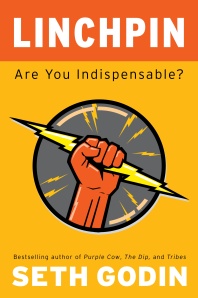 I have been seeing this Cal Newport’s book every time I visit a bookstore. I have thought of buying it many times but I always ended up buying other books instead.
I have been seeing this Cal Newport’s book every time I visit a bookstore. I have thought of buying it many times but I always ended up buying other books instead.
The reason: I am a bit disturbed with the ideas being presented in this book.
However, two weeks ago, I finally decided to buy it.
“Follow you passion” is a Bad Advice
As a long time subscriber of “follow your passion” advice I have the reason to feel disturbed with this book.
“So Good They Can’t Ignore You: Why Skills Trump Passion in the Quest for Work You Love” by Cal Newport (2012) is a book about counterintuitive career advice and debunking of the famous “follow your passion” advice.
To discover the reality how people end up loving what they do, Newport spent considerable time in interviewing the organic farmers, venture capitalists, screenwriters, freelance computer programmers, and others who admitted to deriving satisfaction from their work. This made him uncovered the strategies they used and the pitfalls they avoided in developing their careers.
Newport argues that passion comes after you put in the hard work to become excellent at something valuable, not before. Thus, “follow your passion” advice is dangerously destructive as it often leads people to unproductive soul searching, endless second-guessing, and chronic job-hopping.
Compelling careers often have complex origins that reject the simple idea that all you have to do is to follow your passion.
Newport suggests that one should focus on becoming really good at something valuable because if you become good at something you will find the passion you are looking for. This means, don’t follow your passion, instead love your work. Keep on practicing your skills. Be so good they can’t ignore you. This is the only way you can develop your career capital.
Career capital, according to Newport, is your rare and valuable work related skills. The currency you use to obtain ideal work.
Passion Mindset Vs. Craftsman Mindset
One should have a craftsman mindset instead of a passion mindset. Here, Newport explains in length why he dislikes the passion mindset:
Whereas the craftsman mindset focuses on what you can offer to the world, the passion mindset focuses on what the world can offer you. This mindset is how most people approach their working lives.
There are two reasons why I dislike the passion mindset (that is, two reasons beyond the fact that…it’s based on a false premise). First, when you focus only on what your work offers you, it makes you hyperaware of what you don’t like about it., leading to chronic unhappiness. This is especially true for entry-level positions, which, by definition, are not going to be filled with challenging projects and autonomy – these come later. When you enter the working world with the passion mindset, the annoying tasks you’re assigned or the frustrations of corporate bureaucracy can become too much to handle.
Second, and more serious, the deep questions that driving the passion mindset – ‘Who am I?’ and ‘What do I truly Love?’ – are essential impossible to confirm. ‘Is this who I really am?’ ‘Do I love this?’ rarely reduce to clear yes-or-no responses. In others words, the passion mindset is almost guaranteed to keep you perpetually unhappy and confused…
4 Rules On Building Your Career
Newport suggests 4 counterintuitive rules on building a successful career:
- Rule #1: Don’t Follow Your Passion
- Rule #2: Be So Good They Can/t Ignore You
- Rule #3: Turn Down a Promotion
- Rule #4: Think Small, Act Big
Final Notes
It is almost a given that time will come when your existing belief will be challenged by a new idea. This is what I have experienced in reading this Newport’s relevant book. Indeed, we must consider our point of view as temporary,
Here’s a final quote from the book that I want to leave with you:
Don’t obsess over your true calling. Instead, master rare and valuable skills. Once you build up the career capital that these skills generate, invest it wisely. Use it to acquire control over what you do and how you do it, and to identify and act on a life-changing mission. This philosophy is less sexy than the fantasy of dropping everything to go live among the monks in the mountains, but it’s also a philosophy that has been shown time and again to actually work.
Be so good they can’t ignore you.
 Got frustrated with my boss…I resigned.
Got frustrated with my boss…I resigned.




